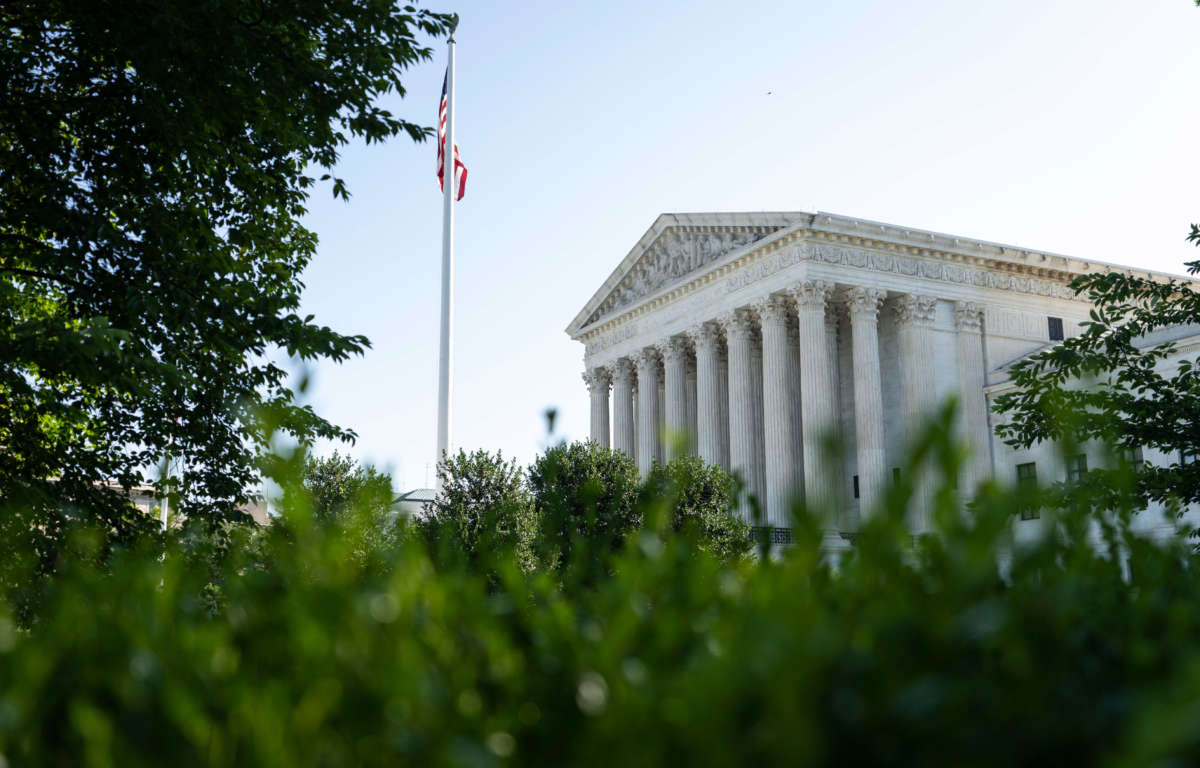Did you know that Truthout is a nonprofit and independently funded by readers like you? If you value what we do, please support our work with a donation.
A nonpartisan government watchdog group has issued a new report detailing a number of reforms and changes that could be implemented at the Supreme Court in order to establish more public trust and decrease partisanship in the institution.
Last year, the Project on Government Oversight (POGO) organized a panel of former judges and legal experts to examine issues facing the High Court. The organization released its report on possible changes Thursday.
The Supreme Court faces a number of challenges, the report noted, including the fact that it’s become a mechanism for politicians to “win” on issues, rather than being a fair and impartial arbiter of cases that reaches the bench.
“Under the present system, partisans have incentives to control the composition of the courts so as to try to affect the resolution of disputes in a way that furthers particular policy objectives and politics,” the report from POGO said. “This process distorts the actual and the perceived fairness and independence of the courts.”
The report suggests increasing the number of justices currently seated on the Court, entrusting a screening committee to recommend candidates for nominations (rather than having the process start with the president), and creating new ethics rules for justices of the Court to abide by, including rules on when they should recuse themselves.
A “binding code of conduct” could be put in place, for example, ending self-governance practices that justices currently (and questionably) abide by, and having an established code help to “address recusal determinations.”
The POGO report also recommended changes to case selection, as well as having smaller panels of justices hear individual cases, rather than having every member of the Court involved in the final decision, similar to how lower appellate courts in the federal judiciary system work.
The report also suggested that term limits for justices should be considered. An 18-year limit on how long a justice can serve, for example, would guarantee a new pick nearly every two years, the report noted, making the selection process a less-dire one, particularly if that person is not selected to serve for life as they currently are.
“A limit of service on the Supreme Court necessarily creates more opportunities for appointments to the Court,” the POGO panel on reforms wrote. “On its own, one might anticipate more conflicts over confirmation, but combined with the use of screening committees and compositional changes that deemphasize individual justices, the whole package of such reforms can help alter the stakes by lowering the impact of each individual selected.”
The report comes eight months after former President Donald Trump, in the days leading up to the 2020 presidential election, nominated and confirmed now-Justice Amy Coney Barrett, following the death of Justice Ruth Bader Ginsburg last fall. Republicans in the Senate had acted hypocritically when they confirmed Barrett to her post, after they had blocked former President Barack Obama in 2016 from appointing a new justice to the Court due to the proximity of that year’s presidential election.
Before becoming president, Joe Biden pledged to form a commission to investigate ideas for reforming the Supreme Court. In April this year, as president, Biden fulfilled that pledge by forming a 36-member panel, which will report its findings to him within 180 days of its formation.
While many applauded that move, others took issue with Biden’s executive order, as it didn’t require the panel to endorse changes, just to merely examine ideas for reforms that could be considered.
“This White House judicial reform commission has a historic opportunity to both explain the gravity of the threat and to help contain it,” said Aaron Belkin, director of the pro-Supreme Court reform organization Take Back the Court. “But we don’t have time to spend six months studying the issue — especially without a promise of real conclusions at the end.”
Press freedom is under attack
As Trump cracks down on political speech, independent media is increasingly necessary.
Truthout produces reporting you won’t see in the mainstream: journalism from the frontlines of global conflict, interviews with grassroots movement leaders, high-quality legal analysis and more.
Our work is possible thanks to reader support. Help Truthout catalyze change and social justice — make a tax-deductible monthly or one-time donation today.
